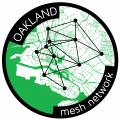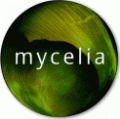In 1991, Hakim Bey published a work entitled TAZ: Temporary Autonomous Zone, Ontological Anarchy, and Poetic Terrorism. The TAZ is essentially that liminal space that exists on the edges of things, the moments that allow for true creativity that occur outside of the hierarchical structures of society and information. True freedom and empowerment is found only in these moments. Though we often conceive of the Internet as a liminal space in which structural hierarchies are dissembled, Bey differentiates between “the Net” as the hierarchical structures of information flow, and the “counter-Net”, which are those clandestine and rebellious practices that subvert this hierarchy (think music downloading…). The “Web”, then, enables open and horizontal patterns of information flow. Together, the three comprise the system that make up the Internet. Some great questions are posed- I’ve excerpted my favorite bit below:
“Also I am not impressed by the sort of information and services proffered by contemporary “radical” networks. Somewhere–one is told–there exists an “information economy.” Maybe so; but the info being traded over the “alternative” BBSs seems to consist entirely of chitchat and techie-talk. Is this an economy? or merely a pastime for enthusiasts? OK, PCs have created yet another “print revolution”–OK, marginal webworks are evolving–OK, I can now carry on six phone conversations at once. But what difference has this made in my ordinary life?
Frankly, I already had plenty of data to enrich my perceptions, what with books, movies, TV, theater, telephones, the U.S. Postal Service, altered states of consciousness, and so on. Do I really need a PC in order to obtain yet more such data? You offer me secret information? Well…perhaps I’m tempted–but still I demand marvelous secrets, not just unlisted telephone numbers or the trivia of cops and politicians. Most of all I want computers to provide me with information linked to real goods–“the good things in life,” as the IWW Preamble puts it. And here, since I’m accusing the hackers and BBSers of irritating intellectual vagueness, I must myself descend from the baroque clouds of Theory & Critique and explain what I mean by “real goods.”
Let’s say that for both political and personal reasons I desire good food, better than I can obtain from Capitalism– unpolluted food still blessed with strong and natural flavors. To complicate the game imagine that the food I crave is illegal–raw milk perhaps, or the exquisite Cuban fruit mamey, which cannot be imported fresh into the U.S. because its seed is hallucinogenic (or so I’m told). I am not a farmer. Let’s pretend I’m an importer of rare perfumes and aphrodisiacs, and sharpen the play by assuming most of my stock is also illegal. Or maybe I only want to trade word processing services for organic turnips, but refuse to report the transaction to the IRS (as required by law, believe it or not). Or maybe I want to meet other humans for consensual but illegal acts of mutual pleasure (this has actually been tried, but all the hard-sex BBSs have been busted–and what use is an underground with lousy security?). In short, assume that I’m fed up with mere information, the ghost in the machine. According to you, computers should already be quite capable of facilitating my desires for food, drugs, sex, tax evasion. So what’s the matter? Why isn’t it happening?
The TAZ has occurred, is occurring, and will occur with or without the computer. But for the TAZ to reach its full potential it must become less a matter of spontaneous combustion and more a matter of “islands in the Net.” The Net, or rather the counter-Net, assumes the promise of an integral aspect of the TAZ, an addition that will multiply its potential, a “quantum jump” (odd how this expression has come to mean a big leap) in complexity and significance. The TAZ must now exist within a world of pure space, the world of the senses. Liminal, even evanescent, the TAZ must combine information and desire in order to fulfill its adventure (its “happening” , in order to fill itself to the borders of its destiny, to saturate itself with its own becoming.
, in order to fill itself to the borders of its destiny, to saturate itself with its own becoming.
Perhaps the Neo-Paleolithic School are correct when they assert that all forms of alienation and mediation must be destroyed or abandoned before our goals can be realized–or perhaps true anarchy will be realized only in Outer Space, as some futuro-libertarians assert. But the TAZ does not concern itself very much with “was” or “will be.” The TAZ is interested in results, successful raids on consensus reality, breakthroughs into more intense and more abundant life. If the computer cannot be used in this project, then the computer will have to be overcome. My intuition however suggests that the counter-Net is already coming into being, perhaps already exists–but I cannot prove it. I’ve based the theory of the TAZ in large part on this intuition. Of course the Web also involves non-computerized networks of exchange such as samizdat, the black market, etc.–but the full potential of non-hierarchic information networking logically leads to the computer as the tool par excellence. Now I’m waiting for the hackers to prove I’m right, that my intuition is valid. Where are my turnips?”




